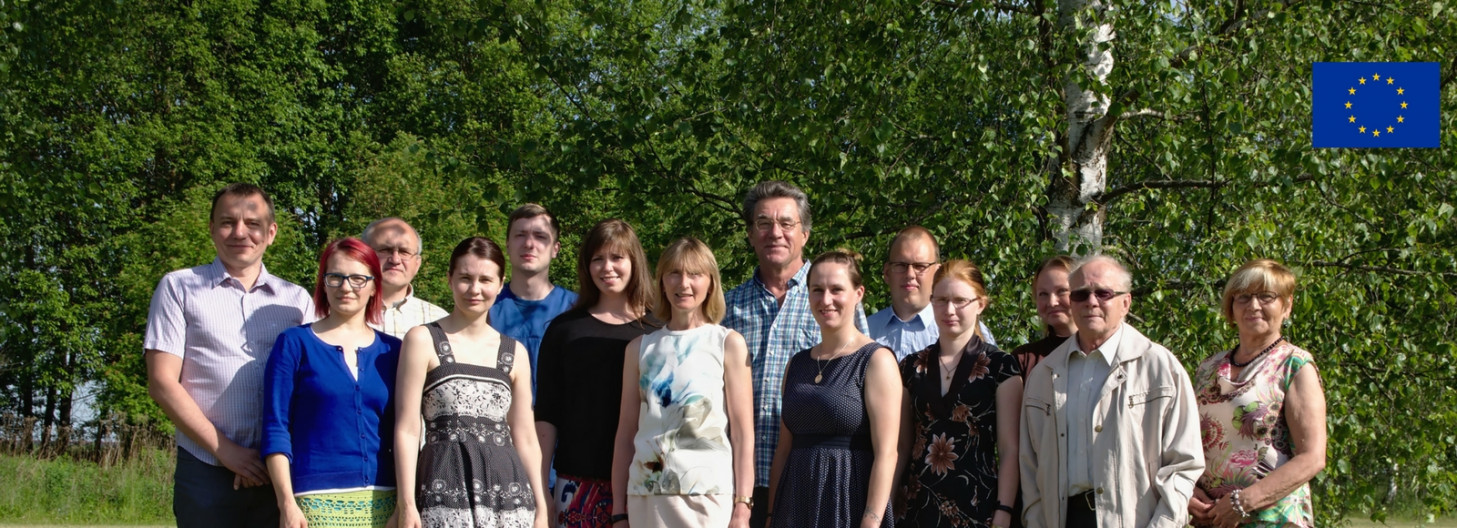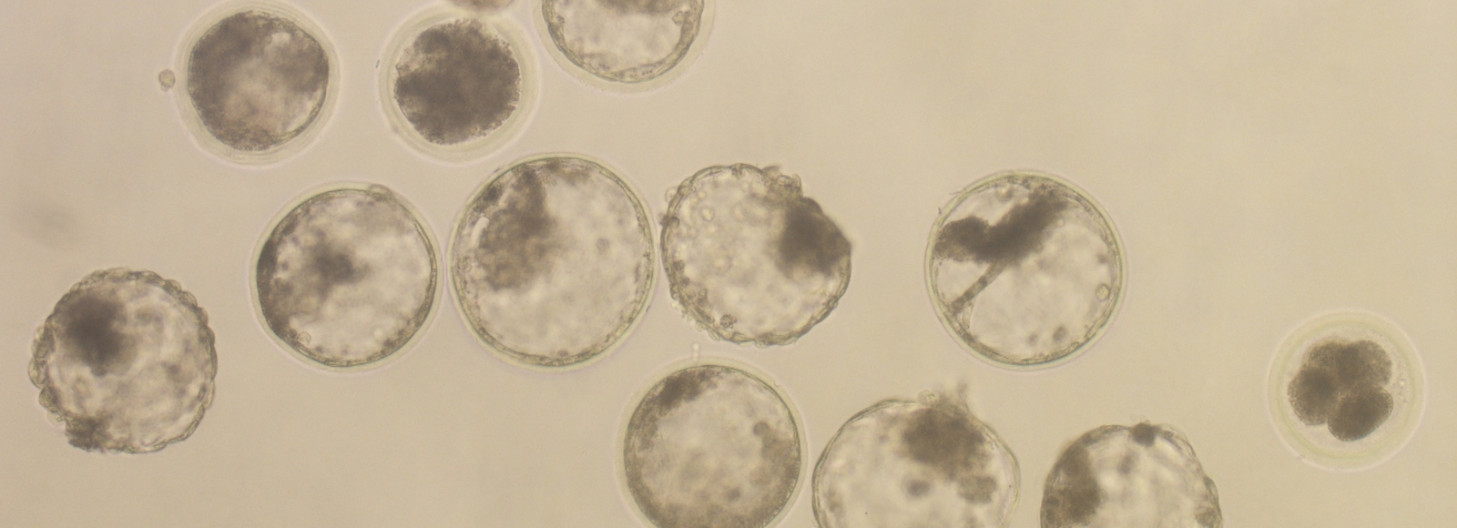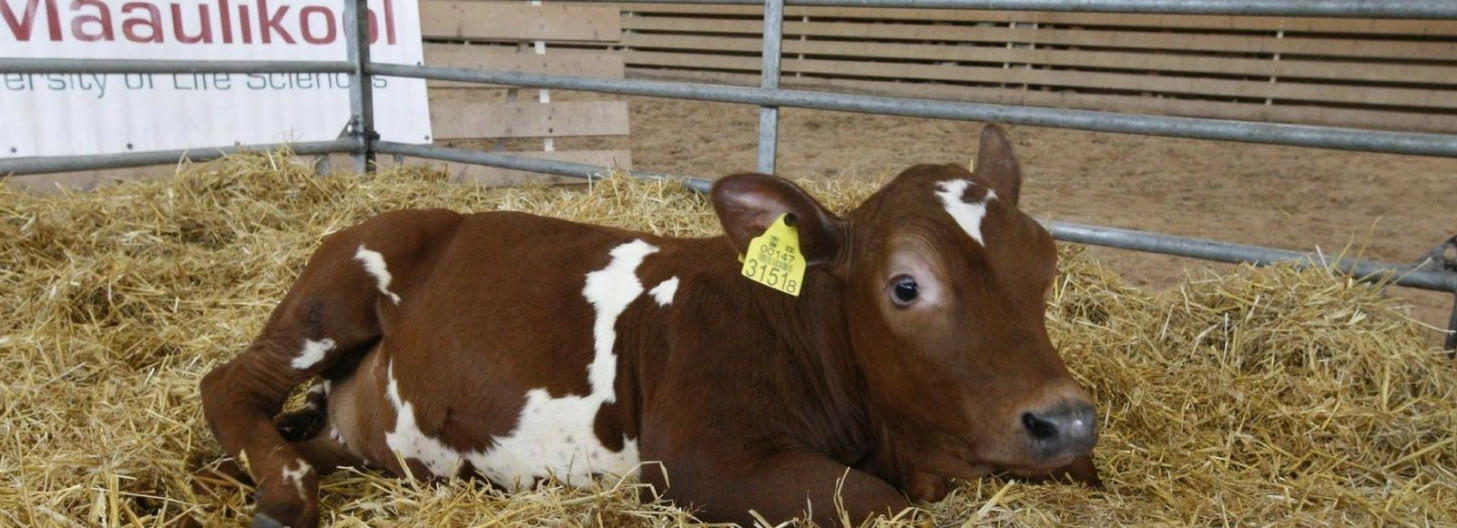Partner Institutions
SEARMET is a consortium of four partners – Estonian University of Life Sciences in Estonia, the University of Sheffield in Great Britain, the University of Copenhagen in Denmark and the University of Tartu in Estonia,
The aim of the consortium is to improve the scientific knowledge and innovation capacity of the Estonian University of Life Sciences (EMU) in the linked fields of animal reproductive medicine and embryo technology.
The consortium is funded by the European Union through the Coordination and Support Action of the Horizon 2020 programme, under grant agreement No 691818 (“Scientific Excellence in Animal Reproductive Medicine and Embryo Technology”).


Estonian University of Life Sciences (Estonia) will be the primary recipient of training and consultation, so that it can build its capacity and scientific excellence in the areas of Animal Reproduction and Embryo technologies. EMU has a strong foundation, being one of the top institutions in these fields in Eastern Europe. For example, EMU has bovine in vitro production experience since 1992. EMU introduced bovine somatic cell nucleus transfer cloning techniques in 2007 and produced bovine cloned embryos since spring 2008 on a regular basis for the research purposes. In 2012, the first cloned calf was born, EMU was the first university in Estonia where whole genome sequencing of Estonian Holstein cow and bull genome were carried through. EMU is the only university in Estonia for the integration of academic education and research activities in the field of sustainable use of natural resources, food production, technology and veterinary medicine. The Institute of Veterinary Medicine and Animal Sciences performs teaching and R&D activities in the field of animal nutrition, genetics and breeding, reproductive biology, biotechnology, animal health, food safety and food technology. Research and development at the Department of Reproductive Biology are focused on fertility and infertility in large animals and reproductive biotechnology. EMU still has significant gaps in technical expertise and institutional networking and infrastructure that has limited its impact and hinders future advancement. You can find more information from https://www.emu.ee/en/


The University of Sheffield (Great Britain) is established as one of the best-regarded universities in the world, consistently positioned in the top 75 in the World University Rankings, with an annual turnover of £400m. In regards to this project, SU has an excellent position in reproductive and developmental medicine research and networking within Europe and the world. Both recent European wide Cost Actions in this field i.e., GEMINI (FA0702, http://www.cost-gemini.eu/) and Epiconcept (FA1201, http://epiconcept.group.shef.ac.uk/) have been initiated and managed by SU. Recent developments in understanding of innate immune responses during the periconception period as well as deciphering the epigenetics, genomics and proteomic interactions taking place during the periconception period has been either discovered by researchers based in SU or has been reported in collaboration with SU researchers. You can find additional information http://fazelilab.group.shef.ac.uk/


University of Copenhagen (Denmark) operates the Stem Cell and Embryology Group that will work with EMU directly in the SERMET project. The group has strong experience in the production of bovine embryos. With respect to the stem cell activities, the Group holds competences in human and porcine iPSC reprogramming and neural differentiation of iPSC including all necessary characterization of stem cells and differentiated cells. Likewise, the Group has competences in CRISPR-based genome editing for production of isogenic control cell lines and induction of specific mutations in normal lines. For the activities, the group holds competences for oocyte maturation, fertilization and initial embryonic development in vitro, for development of relevant media for these procedures and for molecular and cell biological characterization of early embryos. The group closely collaborates with commercial bovine in vitro production facilities as well as universities around the world, in particular Giessen University, Colorado University and the University of Florida. UCPH has extensive experience making connections to industry, including having strategic partnerships with both large and small firms in the pharmaceutical sector. This includes Novo Nordisk, which markets its hormone therapy and other products in more than 180 countries; GlaxoSmithKline, which develops and makes medicines and vaccines in over 170 countries and has established research collaborations with more than 3,000 organisations. One member of the UCPH team is Founder and CSO of EmbryoTrans Biotech, a company that develops serum-free ready-to-use in vitro fertilization (IVF) media for animal reproduction for the UK company IVF Bioscience. They also have a strong relationship with Lundbeck, which markets pharmaceutical products in 100 countries. Within the university there is an extensive collaboration with other departments, allowing us to do extensive analysis such as gene expression analysis, gene modification, differential staining as well as electron microscopy. You can find more information http://ikvh.ku.dk/english/


The University of Tartu (Estonia) is Estonia's leading centre of research and training. The partner institute inside the University of Tartu for the present project is Department of Pathophysiology. Located in UT’s Faculty of Medicine, The Department of Pathophysiology is focused on the research-based teaching of the basis of disease at all levels of medical education. The Department of Pathophysiology has expertise in cellular energy metabolism, disease models, genomics (genome and exome sequencing, RNAseq, genotyping), human studies, biobanking and complex data analysis. UT will participate in some training activities offered by SU and UCPH and will work with EMU to develop a strategy for translating animal research results into forms that can be used to benefit human health, such as a better understanding of human reproductive health. EMU and UT will in turn work together to try and exploit potential research results by reaching out to the biopharmaceutical industry. You can find additional information http://www.ut.ee/en







